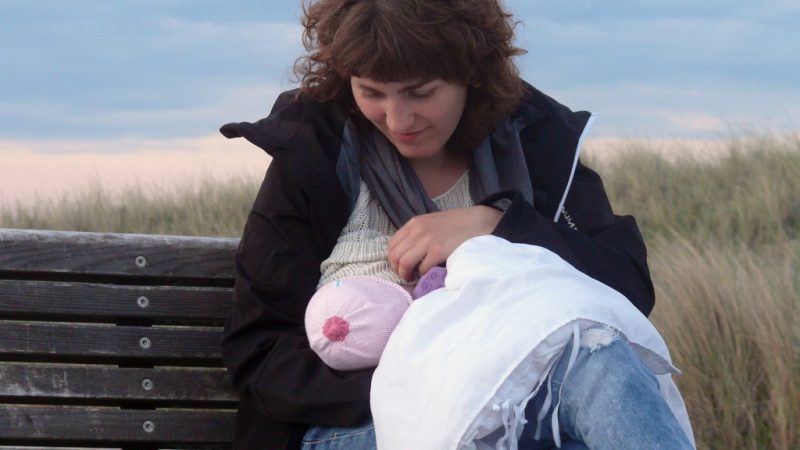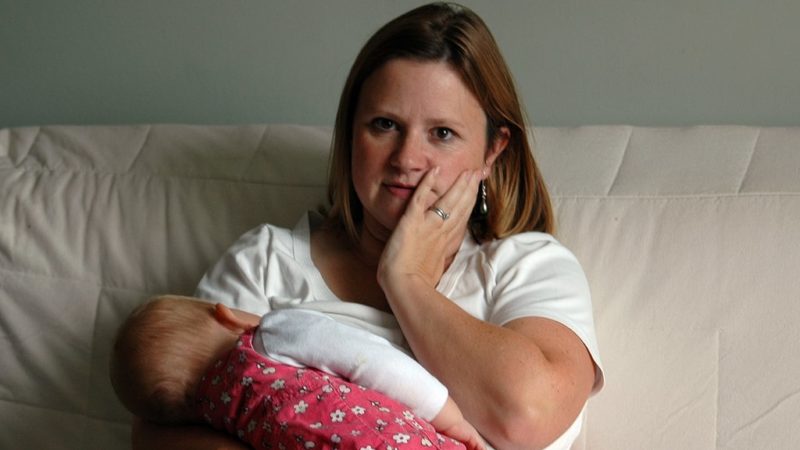
Does the UK Support Breastfeeding? Q&A with Dr Ruth Stirton
Does the UK support breastfeeding?
 The World Breastfeeding Trends Initiative (WBTi) is assessing and monitoring the progress of countries towards the recommendations of the WHO’s Global Strategy for Infant and Young Child Feeding. Guess how the UK is performing? Not well.
The World Breastfeeding Trends Initiative (WBTi) is assessing and monitoring the progress of countries towards the recommendations of the WHO’s Global Strategy for Infant and Young Child Feeding. Guess how the UK is performing? Not well.
Dr Ruth Stirton is a lecturer in Healthcare Law at the University of Sussex and she is running a research project called “My Infant Feeding Journey” to help understand more about infant feeding policy in the UK. Ruth joined us recently for a Q&A.
Infant Feeding Stories
Q: Please could you tell us a bit about your project My Infant Feeding Journey?
Why did you choose to focus on collecting women’s experiences of infant feeding as a response to the World Breastfeeding Trends Initiative report?
Ruth: Ever since becoming a mother myself (in 2013, then again in 2016) I was struck by the stories people told me. Birth stories, feeding stories, poo stories! There’s something really powerful about our stories, what we focus on, how we felt, what we exclude, what we remember.
I joined the WBTi team as a volunteer, thinking that I could write a few letters to my MP and tweet occasionally, then I found myself thinking about the actual women affected by the UK’s policy and wanting to hear the stories.
The WBTi assessment didn’t allow for detailed qualitative data to be collected (time, money) but I work at a University, and I have time, and can get access to money, so I thought that stories would be a good place to start.
PSG A: Will you analyse the data? Or present the stories to decision makers to encourage them to empathise with the human stories behind the stats? Or something else?
I’m just starting to analyse the stories. I’ve got 30 so far, they range from the long ones (14,000 words!!) to shorter (half a page) stories. I’m using nvivo, which is qualitative coding software, and coding themes, events, feelings. Anything that seems important, and contributes to my understanding.
Once I’ve coded, and recoded all the stories I’ll pull together the themes and develop an understanding of the issues that affect women’s feeding experiences. Then I’ll be able to map those issues to the WBTi recommendations, and write Parliamentary briefing papers and other publications, and publicise the research.
PSG B: That’s really exciting. Can’t wait to read the final paper 🙂
Ruth: The other thing that I’m asking participants to consent to is future contact and explicitly for media use. Some of the stories will make great case studies for media use. Maybe even videos, and certainly posters.
Q: Why ‘infant feeding’, instead of ‘breastfeeding’? Is it to reduce emotional triggers and show Inclusivity?
Ruth: Yes. That’s part of it. Given that there is a huge amount of sensitivity around feeding decisions, using the word ‘breastfeeding’ can induce defensiveness and feelings of being judged. For my research project, I want stories about all methods of feeding. And, to do this, I need to be as neutral and inclusive as possible. In other contexts, it’s a bit more pragmatic, I think. Whether we like it or not, the majority of babies in the UK are not breastfed. So, infant feeding is more representative of reality than “breastfeeding” is.
Q: Are you still looking for mothers to take part in your infant feeding stories study?
Ruth: Yes! I’m going to collect stories from as many women who want to write them, for as long as women want to write them. The idea is to put together a repository of stories, and a database of women who are happy to contribute to further research. So yes, keep them coming!
All the information is linked from the Facebook page. And I’m posting occasional updates there too.
PSG B: How do you advertise your need for women to contribute their experiences?
Ruth: I’ve been tweeting it, and asking other groups to tweet it, through Facebook, and friends and their friends. There’s also a poster and flyer if anyone wants to promote it that way
Q: What qualitative analysis method are you using?
Ruth: I’m doing thematic analysis. But I’m thinking that narrative analysis might be necessary. I’ll see how it goes. I’m relatively new to doing qualitative research, although I’ve been reviewing qualitative research for a while as part of my research ethics role.
PSG C: It can be quite hard to decide which technique to use, but thematic analysis sounds like a good starting point. Narrative would work well with this type of data too. It’s such a lengthy, laborious process, I hope you have plenty of help!
Q: How does the software help you look for themes and feelings?
PSG C: The software doesn’t find the themes itself, the researcher/coder does it manually. It’s a really useful tool for organising your coding/themes and has many benefits to doing it on paper.
Ruth: It’s more like a filing/highlighting system. I read the story and highlight a section and tag it. I can then use the tag again in other stories.
The alternative is to do it with printouts and highlighter pens, and then cut up the manuscript and rearrange it. ?
Q: Could there be the potential for much bias if the researcher is identifying the themes?
Ruth: It’s something to think about, and the qualitative researcher does have to make a point of acknowledging their biases and setting themselves apart from them. In addition, it’s worth getting a team to look at some of the coding, so that there are several sets of eyes. Each story is read over and over again, and the research immerses themselves in the story, so it’s less likely that there will be bias as such.
PSG D: yes I can see that…and say you get engrossed in one story, what’s to say the reading and understanding of the next story won’t be read or viewed differently?
Ruth: Yes, that’s exactly what it’s meant to do though. It’s an iterative process. And once I’ve read through them all once, I’ll go back to the beginning and read them again, and look for things I didn’t see in the first go. And then once I’ve done the second reading, I’ll go through and do a third one. The aim is to refine the codes until everything that’s there is brought out.
Online QDA – How and what to code – A 3-minute video produced by the Open University
Breastfeeding in the Media
This week is world breastfeeding week and today has seen breastfeeding all over the media. This should be a positive move to educate more people about breastfeeding, but in reality, often the media is presenting sensationalist headlines and comments from people with extreme or uneducated views.
How much is this publicity affecting society’s perceptions of breastfeeding as a whole?
Ruth: It’s such a polarising issue. And news stories are better if they can be set up as opposing views, hence the “keep em covered up love” stories, and the opposite.
The guilt and shame and judgement that people feel and express, get in the way of sensitive discussion. I’d really like to see a calmer approach from the media. For what it’s worth, the “breastapo” as they’ve been called, I think, have realised that the dogmatic ‘breast is best’ message is failing. Because it alienates people.
I don’t think we really know what the UK’s perceptions of breastfeeding are. We know that some people object to it in public, and can be quite vocal. We know that the law protects the right to breastfeed, and that women who want to will do so.
Social media and breastfeeding
Does social media have a role to play in increasing breastfeeding rates? Has breastfeeding increased since people started sharing “brelfies” and using #normalisebreastfeeding?
It would be interesting to know how many women were able to continue breastfeeding due to unofficial online support when they were given poor advice from hcp’s.
Ruth: These are really important questions. There are a huge number of support groups on Facebook, most of which are just mums who’ve fed.
Several generations ago we’d have had our village to help raise our children. And I wonder how much the internet has solved the problems that have arisen because we’ve all moved around. It’d be fascinating to do research on
PSG: I can hand on heart say that if it wasn’t for breastfeeding support groups on Facebook I would have most definitely given up after the first couple of weeks. It’s proof that peer support is so important, and social media is far more easily accessible (especially in the middle of the night) than any other support bases.
Breastfeeding and the NHS
How do you convince GPs and other HCPs to learn about breastfeeding – the norms, the drugs in breastmilk, how to fix issues etc?
Ruth: There’s a great new organisation called the GP Infant Feeding Network. It started as a Facebook group, but meets in real life and has a political arm as well. https://gpifn.org.uk/
I think you can get flyers to give to your GP to tell them about the group. They have a specific aim of getting infant feeding into the medical school curricula. Because, the chances are that your GP has had at most 30 mins of infant feeding teaching!
PSG A: This is really interesting. I’ve had a few health professionals express surprise at me feeding a 2 year old and ask when I’m going to stop. The lack of education is astounding.
PSG B: I live in Norfolk and several Norwich GPs have signed up to be breastfeeding champions, do you think initiatives like this should be rolled out across the board? Do you think having one GP and one nurse per surgery who is trained up properly would be enough or just a drop in the ocean?
Ruth: This is a brilliant initiative, and the Norwich team have done amazingly well. I think it’s a very good start, but I imagine that the one trained up person would soon be overwhelmed, but that gives them evidence that the service is used and can help them push for more support. Starting small and growing the support is better than not starting.
PSG D: University of Glasgow do an initiative for their trainee doctors on Breastfeeding. Basically, loads of us Breastfeeding mums were asked along to chat to a group of trainee doctors, ratio of about 6 students to 2 mums. We told them all about our experiences and quoted WHO guidelines. Explained the lack of knowledge and support available. They all seemed incredibly interested and asked loads of questions. We fed during the session too to demonstrate latch and positions. I’d like to think it will help the next batch of GPs in Glasgow to be better at supporting Breastfeeding.
Q: I’ve had GPs, health visitors and even a paediatrician recommend stopping breastfeeding, or pushing formula as a solution to everything I’ve faced over the last 18 months. Why don’t they support it?
Just last week I was told by my GP that I “should stop that by now” with no reasons as to why.
Ruth: This is the WBTi findings on training.
PSG B: I think I’ve had more negative comments from HCPs than positive ones regarding breastfeeding, and my experience from friends seems to be similar…do you think that the lack of training and understanding is an issue, or is it simply that they don’t have the time /resources to offer the necessary support?
PSG: If their organisation goes through Baby Friendly they all have to have a min of 2 days UNICEF type course. New Health Visitors are supposed to get this during their course too but not sure if every Uni is up to speed on this. Generally, they will try to seek out this training too.
PSG N: In my experience, it’s pretty hit and miss even with BFI accreditation.
Lactation consultant: are you talking about fully accredited organisations?
BFI accreditation requires that 80% pass really stringent practice criteria and mums are audited too. What happens though in areas of higher turnover of staff or overlap with non-accredited area or overlap with non-accredited maternities can water down excellence in core service IYSWIM
It can very quickly unravel, IF the right stuff isn’t put in place to keep stuff at that level…
Ruth: This is a really complex issue, and one that affects everyone. There is a significant lack of training across the sector, HCPs don’t know what they’re looking at, and often don’t have the skills to diagnose feeding difficulties. There’s also a lack of awareness about how their comments affect mothers.
It’s so often the case that a negative comment from a GP puts an end to a feeding relationship. Solving these issues is going to be a long process, but the GPIFN website and group is a start, as is the Norwich initiative. Ultimately, mothers should be able to make informed choices about how to feed their babies, and then be supported in their decision by trained professionals. (Hurrah for common sense!)
Q: Do you think it would be feasible to legislate or otherwise bring about a situation where all hospitals with a maternity service are Unicef accredited? How realistic do you think that scenario is?
PSG: Would training or assessment then become obsolete if every maternity hospital has to have it? I would worry about a drop in standards
Lactation consultant (IBCLC): No the bar keeps going up in terms of what’s expected (good thing ?) in my experience.
NHS Trust Contract Manager: I don’t think so – that doesn’t happen with pressure sores or other training
Ruth: I think it would be possible to set standards, perhaps through the NHS registration via the CQC to require maternity service providers to be BFI accredited. But, it’s a big ask, and it’s an expensive thing to do. Brighton (which has an excellent service) isn’t BF accredited, for example. So, I think it would have to be done very carefully, and it’s not clear to be that BF is necessarily the best framework. BF is Baby Friendly.
NHS Trust Contract Manager: Contracts can (and do) have key performance indicators to be held to account at monthly commissioner meetings. I personally would like to see legislation in this area but I think we’re way off that!
Ruth: I think we’re a long way from legislation. There has to be the political appetite for it, and that’s going to be limited in the current climate, given the other matters that are occupying the government. The All Party Parliamentary Group on infant feeding and inequality put a bill forward in the last parliamentary session to enforce the WHO formula milk advertising code. But it was unfinished when the election was called so it was cancelled. I don’t know whether they’ll introduce another bill in the new session.
Funding breastfeeding support
How do you push forward with support services that ‘cost’ money when health authorities and the NHS are strapped for cash?
Ruth: And there it is, the £billion question!
I think the only effective way is to make the financial case. We can’t afford not to support breastfeeding. The financial implications are huge. And the long-term costs to the NHS are huge. Then there’s the secondary (in policy terms, but not in human terms) issue that the vast majority of mothers initiate breastfeeding, and stop before they are ready to. That’s the worst part of all this.
Given the long-term benefits and savings to the NHS that breastfeeding can bring, why are they not ensuring that breastfeeding support is available in post-natal wards? Have you found out much about this?
Ruth: It’s a difficult question, and part of it is down to the limited training that postnatal staff get on breastfeeding. There’s the general understaffing issues across the NHS which affect this aspect of postnatal care.
The peer supporters’ frameworks are being cut quite dramatically across the country.
NHS Trust Contract Manager: Yep – the budget is even removed all together or cut dramatically – by 50% for instance
Ruth: I’m not sure that this is a satisfactory answer! There has been a recent article that shows the amount of money that would be saved, but I guess that this money is not tangible, whereas the actual cost of a qualified lactation consultant to support a postnatal mother, and to have mothers staying in hospital for 3-4 days to establish breastfeeding would be very high indeed.
Midwife: As a midwife on a postnatal ward, I can speak for myself having had okay training [Unicef]. I run an antenatal and postnatal breastfeeding group, and I however think that it’s down to individuals’ lack of ability to change their own opinions and not read the evidence, and go out of their job role to support mothers to breastfeed.
If every midwife ran a breastfeeding support group, they would all change their ways, believe me!
It’s so ingrained in the NHS that what the doctor says is right, that even midwives who have autonomy, because they know no different they believe the doctor… when the doctor is wrong, making mums feel low and wanting to give up, the 3-hourly feeding rule being one that gets taken out of context way too much!
Breastfeeding research
Q: if you could wave a magic wand and just make it happen, where do you think more research should be done?
Ruth:
- How to change attitudes to breastfeeding. how to deal with the “it’s ok to show sexy boobs but not feeding a baby” attitudes that are so widespread
- How to fund the support that actually works to help mothers feed in the way that they want to
- The role of informal support groups (twitter, facebook, whatsapp) in supporting breastfeeding
- The impact of language (the way that we speak about infant feeding decisions) on women, taking into account the effect of labour as well.
Q: One of our Parenting Science Gang groups is particularly interested in the gaps in GPs’ and other HCPs’ knowledge around breastfeeding and the non-evidence-based advice that is sometimes given.
If you could effectively commission this group to go out and collect data, what would you have us do?
Are there any gaps in evidence or particular types of research that you think could help to get policy changed, resulting in better training or possibly a breastfeeding-friendly culture shift?
Ruth: I think that data on the frequency of feeding issues being raised in general practice would be really useful. And data on GP’s understanding and experience of feeding issues.
Also, observational research on breastfeeding in public, and women’s experiences of doing so.
One thought, the Feeding in the First Year of Life report has recently been published, which reports the research on breastfeeding. They identify some gaps that might be interesting and relevant to the PSG
Breastfeeding policy
Hi Ruth, could you explain a bit what ‘policy’ means, and how it relates to breastfeeding? How is it changed or influenced? And, the million dollar question, if we wanted to influence it, what kind of evidence should we be thinking about?
Ruth: I’m one of a relatively small number of lawyers who think that law is about more than what Parliament write in statutes, and what judges write in cases. Hence ‘policy’. It includes anything that is intended to change behaviour. A good/fun read is Nudge by Cass Sunstein if you want to understand how broad policy might be.
How does it relate to breastfeeding? Well, decisions about how much training health visitors and midwives get is a policy decision, so is the non-directional counselling on feeding choices, so is the provision/lack of lactation consultants on the NHS.
How do we change policy? Well, telling our MPs as often as we can, and as loudly as possible that this is an issue we care about. Attending the All-Party Parliamentary Group on Infant Feeding and Inequalities.
Sending briefing papers to MPs, 1 page long.
PSG: What would a briefing paper look like? No idea how to write one!
Q: The all-party parliamentary group can probably sort out the top down approach but how do we sort out the down up approach? In deprived areas? What is the way in here?
Ruth: I think that on the ground action is necessary. Women need to write to their MPs, and make the issue known. Write to your MP every week and ask about infant feeding. It’s easy to ignore the issue because breastfeeding doesn’t have big lobbying groups attached to it, there’s no money involved. So, making a noise is important. e.g. Blackpool have just lost their excellent services
Lactation consultant (IBCLC): Public Health teams are working actively on this but it can take many years to see results. Embedded cultural issues etc. in my opinion.
Q: What do you think of incentives to breastfeed for deprived areas – eg bf for X weeks get £yy shopping vouchers?
Ruth: I think the problem is not that women don’t want to breastfeed. 80% ish of women initiate breastfeeding. But they end up stopping before they want to because of difficulties at the beginning, or because they’ve been judged, or had comments, or because they don’t have the family support etc etc. I don’t think incentives addresses the actual problem – that the UK framework doesn’t support mothers who want to breastfeed.
PSG: In my opinion it’s not likely to succeed as it completely fails to take into account the complex factors that come into infant feeding decisions. I believe the research on incentives is pretty sparse but what is shown is they are more effective for stopping behaviours like smoking or alcohol and only work there while the incentive is in place. I also have moral/ethical issues with it personally. (I am very interested in the topic because of my public health background.)
Ruth: I think incentives are a really difficult one to deal with, and that they don’t necessarily do what you want them to do. Richard Ashcroft (bioethics professor at QMUL) has done work on incentives.
This is a link to an article by Richard Ashcroft and others.
He’s a professor of bioethics at Queen Mary, and is a thoroughly nice chap. He’d be an interesting person to have a Q&A with.
PSG: There’s a booked called the what Money Can’t Buy: the Moral Limits of Markets by Micheal Sandel that deals with incentives from an ethical standpoint and also about the perverse effects of them. In case anyone is interested.
Q: In my experience, there is a lot of emphasis on bf while the mother is pregnant and at least some support in the early days, but very little once you get past the first few weeks. Is this in line with your findings and what would you suggest needs to be done to address it?
Yes, this is exactly what I’m seeing, and what I hear anecdotally as well. I think there needs to be a complete overhaul of the policy in this area, but I’m not sure how yet. Watch this space!
‘Breast is Best’: the promotion of breastfeeding
Q: Does breastfeeding needs to have a massive PR overhaul? I think the risks of formula are not as well-known as they should be – but the ‘breast is best’ slogan has caused people to look at it from the wrong angle, i.e. Breast is best so it must stop all these horrible things happening, when in actual fact it’s the formula that is increasing the risk.
Ruth: I don’t think we have anything like a proper understanding of the risks of formula feeding, and particularly the long-term impact of formula feeding. And one reason for that is that breastmilk substitutes are the property of the formula companies. Their raison d’etre is to sell infant formula. And they have huge amounts of money.
Once you get huge commercial entities providing products that babies need in order to live, there is a huge imbalance of power between the supplier and the purchaser. There is no need for research to be published. The regulation sets the baseline, all infant milks must meet the standards, but beyond that it’s up to the companies.
The problem (one of them!) is that the formula companies tip the scales, they provide information direct to the public, which shows formula in a positive light. Breastfeeding advertising just can’t compete. And, then when we consider this information provision in the context of a policy framework that is unsupportive of breastfeeding, it’s obvious that women will choose not to.
Saying “risks of” also has negative connotations. It implies that formula feeding is risky, and emphasises the “breastfeeding = good mothering” message. If we trust the regulations, then formula isn’t risky, or at least its risks are within acceptable limits. I think that we need to see the language problem as part of the wider problems of inducing guilt and shame in mothers and how society can stop judging women for the choices they make, especially since society is forcing those decisions on women.
There is a HUGE language problem in this area. And the impact of guilt and shame are not fully understood. But there is literature on it, eg: Shame if you do – shame if you don’t: women’s experiences of infant feeding (Thomson et al).
Q: People often feel the breastfeeding message is being forced on them, or that it makes them feel guilty for not choosing to breastfeed – so you end up with defensive formula feeders.
One of my biggest bug bears is the message of breast being best, when it should be championed as the biological norm…is this just a case of bad press and the necessity for a shake up on how breastfeeding is “promoted”?
There is a recognition among the infant feeding community that “breast is best” is a problematic slogan. It equates breastfeeding with good motherhood, it implies that everything else is bad, it induces guilt and shame in those who had trouble breastfeeding, and increases feelings of “failure”.
Putting the “breast is best” message in the context of a policy framework that doesn’t actually offer sufficient practical support to mothers to breastfeed if they want to, sets women up to fail. It sets up huge expectations and pressure and then fails them at the first hurdle. And, it makes them feel guilty, and suffer shame and grief about “their” failure. Women are being dramatically let down by the policy framework, and “breast is best” is certainly part of it.
There is also a problem with “breastfeeding as normal” because the implication is then that other feeding methods are “abnormal”. This phrase also has pejorative connotations, and doesn’t do anything to bring together mothers who feel judged by society for their feeding choices.
Fiona Woollard has written something about this, and she is working on how philosophy could be used to bring women together, and reduce the judgement: Breastfeeding and defeasible duties to benefit.
If you want to read about the formula companies impact on this then look at Gabrielle Palmer’s The Politics of Breastfeeding. It will make you very angry.
Does the UK Support Breastfeeding?
Q: Does the UK support breastfeeding at all? Is there anything you feel we’re getting right, at a policy level?
Ruth: This is a really difficult question. The more I read and hear in this area, the less positive I feel about it all. There are so many negative stories, and anger, and grief that it feels like very many people are being hurt by the system. So overall, I think the whole policy framework is inadequate.
But there are beacons of greatness (Brighton, Norwich, Scotland), which give me hope that the framework can be changed. There also feels like there’s a bit of a groundswell, women want support and they’re fighting for it.
I think the discrimination legislation that protects women’s rights to breastfeed is brilliant, and that the Scottish one is better than the English one, but on the whole good.
We’ve got a long way to go though.
Related links
Breastfeeding: changing the conversation: A Q&A with Heather Trickey, breastfeeding counsellor and Research Manager for the NCT.
Breastfeeding – a bigger picture: A Q&A with Dr Karleen Gribble, who has been researching women’s infant feeding practice and beliefs for over a decade.


